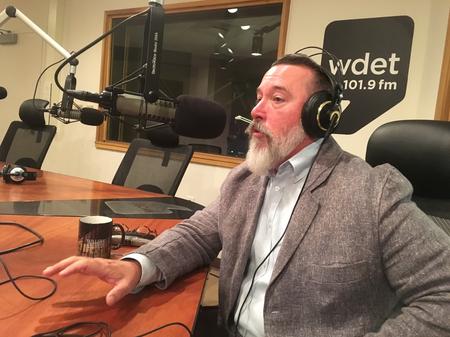Can We Call Las Vegas Attack ‘Terrorism’ Before We Know A Motive?
“It is intentional that these definitions of terrorism are vague, ambiguous, and amorphous.”


This week’s horrific mass shooting in Las Vegas has sparked many larger conversations. One debate that has become front-and-center once again is about defining these kinds of attacks.
Most media organizations have so far stayed away from calling the attack an act of terrorism. They say “terrorism” inherently has an explicit political motive. And so far, we still don’t know the shooter’s motive — or even his political affiliations or leanings.
But others point out that attacks carried out by people of color are often quickly labeled acts of terror and that we often stay away from that kind of language when the attacker or attackers are white.
And is it fair to say that the very act of purchasing, stockpiling, and using these kinds of firearms against a crowd of innocent civilians is an inherently political act?
Oakland University associate professor of political science Peter Trumbore, who studies and teaches international terrorism, joins Detroit Today with Stephen Henderson to talk about these questions. He says any definition of “terrorism” he uses in his research and teaching on the topic emphasizes the political or ideological motivation of the perpetrators.
“And that’s absolutely essential,” says Trumbore. “We talk about terrorism as inherently political. We talk about terrorism as being designed to influence a wider audience beyond the specific victims of any given incident or event.”

Henderson also speaks with Khaled Beydoun, associate professor of law at University of Detroit-Mercy, who examines Islamophobia from a legal and race-based perspective. He recently wrote a piece in the Washington Post, titled “‘Lone wolf’: Our stunning double standard when it comes to race and religion.”
Beydoun says he’s less interested in the technical definitions of “terrorism,” and more concerned with the presumptions that are assigned to racial and religious identity in these cases.
“I don’t like the existing definitions of ‘terrorism’ that are on the books,” says Beydoun. “It is intentional that these definitions of terrorism are vague, ambiguous, and amorphous.”
“There’s a reason behind that because it essentially equips law enforcement and counter-terror enforcement to pick and choose what kind of cases they want to classify, pursue, and prosecute are terrorism,” he says.
Click on the audio player above to hear the full conversation.
